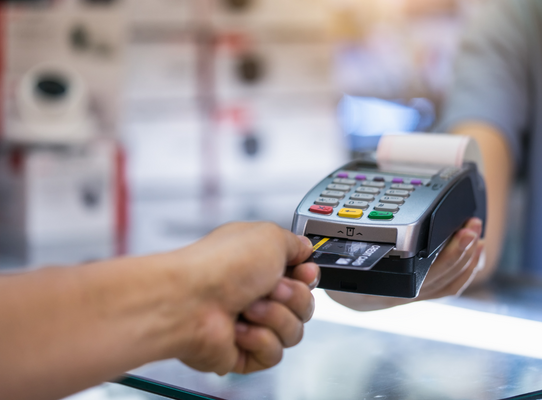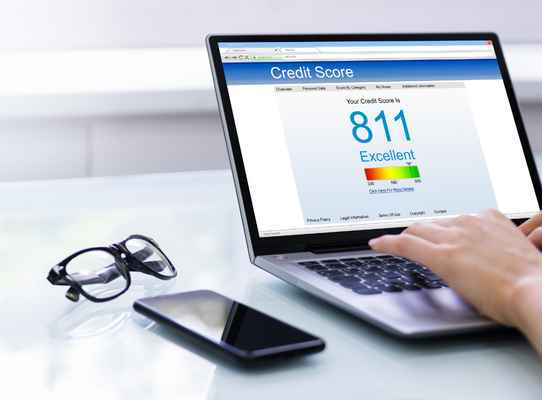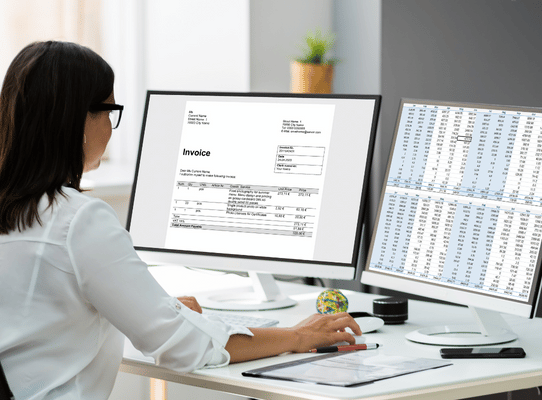When it comes to individual and small business financing, microloans are all the rage these days. From funding a start-up to helping with business growth expenses, microloans have many functions that make them an attractive option for borrowers.
We are here to discuss everything you need to know about microloans. We will explain what is a microloan; we’ll also talk about eligibility and application requirements, microloan advantages and disadvantages, and where you can apply. Read on to learn more about microlending and how it can benefit you.
What Is a Microloan and What Can a Microloan Be Used For?
A microloan is a small loan, usually for a small business including LLCs, that funds business expenses. Microloans generally include loans up to $50,000, although some lenders have higher thresholds for what they consider microlending.
Interest rates on microloans tend to be low, although you may find microloans with higher interest rates. Additionally, the repayment terms of microloans tend to be short, anywhere from three to six years.
You can use microloans to fund any expenses that will help your business start or grow. This funding can include anything from new equipment to building expenses to manufacturing costs. If you want to start, reopen, augment, or improve your business, you can use microloans for just about any expenses.
Terms and Rates of SBA Microloans
One of the most popular types of microloans is the Small Business Administration (SBA) microloan. Nonprofit, community-based agencies administer these microloans, providing technical assistance and management in business growth and development along with funds.
The repayment terms of SBA microloans depend on lender requirements, the amount borrowed, and business needs. Borrowers can pay back SBA microloans over a few years, with a six-year maximum cap on repayment.
Interest rates for SBA microloans vary, dependent upon the community-based agencies administering the loans. If you borrow under the SBA microlending program, expect an interest rate between 8% and 13%.
Microloan Eligibility Requirements
Now that you know exactly what is a microloan, let’s explore eligibility requirements. There are varying eligibility requirements for microloans, dependent upon the lender or intermediary administering institution. In general, the following eligibility requirements tend to exist for microloans across lenders and intermediaries.
Small Business
First, lenders tend to reserve microloans for small businesses. So, you need to own a for-profit business, and it must meet eligibility requirements to be categorized as small by the SBA.
Credit Score
In addition to business size, lenders and intermediaries also set eligibility requirements around credit. Generally, lenders or intermediaries are looking for average credit or better to qualify a business as eligible for a microloan. Average credit usually includes any credit score of 575 or higher.
A low credit score does not necessarily disqualify a business from receiving a microloan. Other application elements, like high revenue or a co-signer, can make up for a lower-than-average credit score.
Loan Payback
Another vital eligibility requirement is the ability to pay back your microloan. You will likely need to submit a business plan demonstrating you have enough cash flow or high enough projected revenue to repay the loan.
Collateral
Businesses also need collateral or a personal guarantee to qualify for microloans. Business assets like equipment or real estate, or personal assets like a car or home are the most common collateral used to secure a microloan. This requirement makes microloans different from the unsecured guarantor loans to which small businesses sometimes turn for financing.
Good Character
Finally, most lenders and intermediaries require borrowers to show good character to qualify for a microloan. You can demonstrate good character by showing no criminal history for crimes like burglary, fraud, or theft.
Best Practices When Applying for a Microloan
As you put your application together for a microloan, there are a few best practice tips to follow.
Application Requirements
First, be sure to read the eligibility and application requirements thoroughly. It is vital that you not miss any application elements or fail any eligibility requirements if you want your application to be successful.
Business Plan Preparation
Second, prepare a detailed business plan that shows exactly how you will spend microloan funds and how they will help your business start, grow, or improve. Be sure you know your business numbers inside and out; microlenders want to see that you understand your value and that they are investing well.
Interview Preparation
Finally, prepare and practice for your interview. Be ready to highlight all your business’s strengths and explain any deficiencies or weaknesses in your application. It never hurts to practice interviewing with a friend or colleague to be sure your interview goes as well as possible.
Where to Apply for Microloans in 2023 & Microloan Examples
In 2023, there are many places you can apply for a microloan. Some of the most attractive microloan examples for borrowers include the following.
SBA Microloans
Perhaps the most commonly used microlending program, SBA microloans targets businesses that may not receive stellar service from traditional lenders. These loans prioritize women, low-income, minority, and veteran business owners. You can apply for these microloans through an intermediary institution. Find your local intermediary on SBA’s list of lenders.
Accion Opportunity Fund
The Accion Opportunity Fund provides microloans up to $100,000 for minority borrowers, along with coaching, support, and technical assistance from peer business advisors. You can apply for this type of microloan on Accion Opportunity Fund’s small business loans webpage.
Kiva
If you are looking for the best interest rate available, you may want to turn to Kiva, which offers microloans at 0% interest. Kiva uses the power of crowdfunding to keep its loans at this null rate. Visit Kiva’s borrowing page to start your microloan application today.
Alternatives to SBA Microloans
While many borrowers turn to the SBA for microlending, there are many alternatives to SBA microloans. Two of the options mentioned above, the Accion Opportunity Fund and Kiva, are great alternatives to a traditional SBA microloan.
Venture Capital Firms
In addition to these lenders, start-ups and small businesses may turn to venture capital firms for microloans. Venture capital firms exist to provide funding for innovative businesses and ideas. Many of these firms offer financing in the form of microloans to fund start-up or growth expenses for new or expanding businesses.
Local Banks
Finally, you may be able to turn to your local bank to find an SBA microloan alternative. More and more banks are investing in small business borrowers through microlending, making this an excellent SBA alternative.
Wrap-up
If before you were wondering what is a microloan, now you know that it can help your small business start, grow, or improve. These small loans with low-interest rates and short repayment terms are often ideal financing options for small businesses looking to enhance their offerings and revenue.
There are many microlending options in 2023 and plenty of places to apply, including the SBA, nonprofits, and venture capital firms. Follow the tips in this article to get started on your microloan application today.













